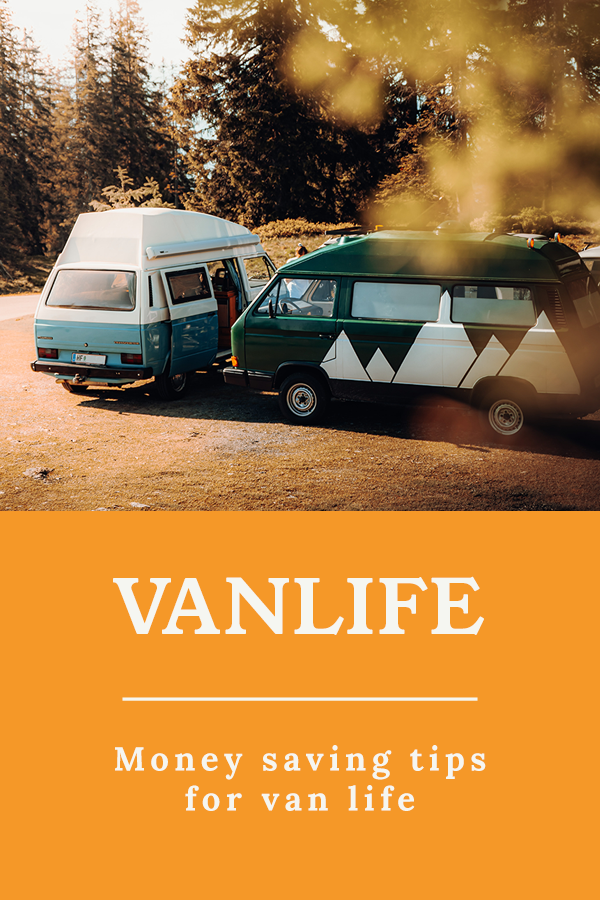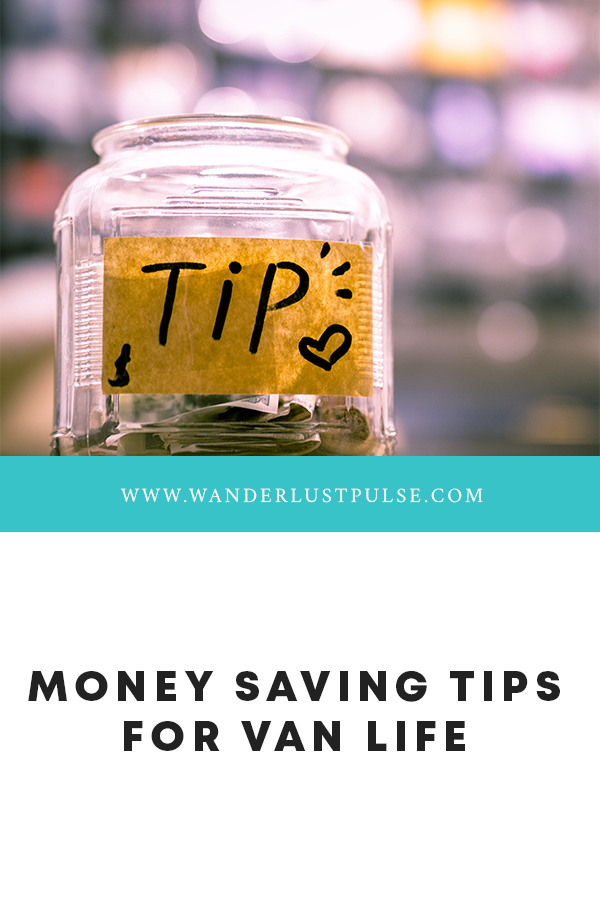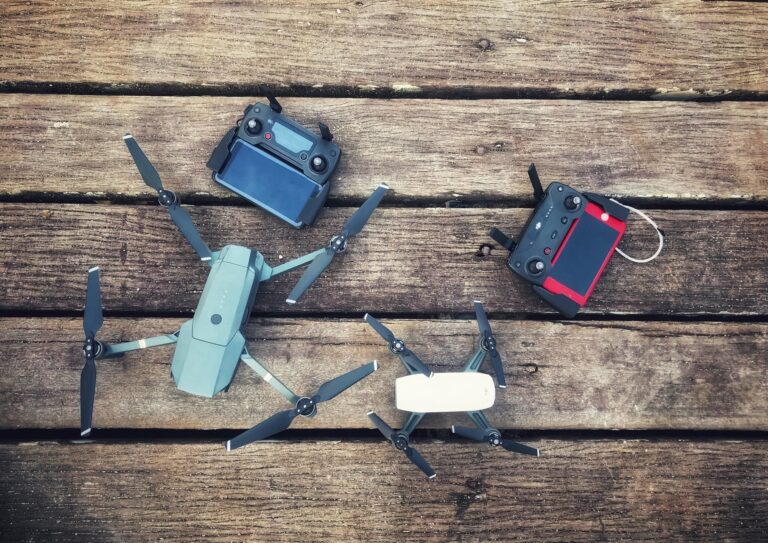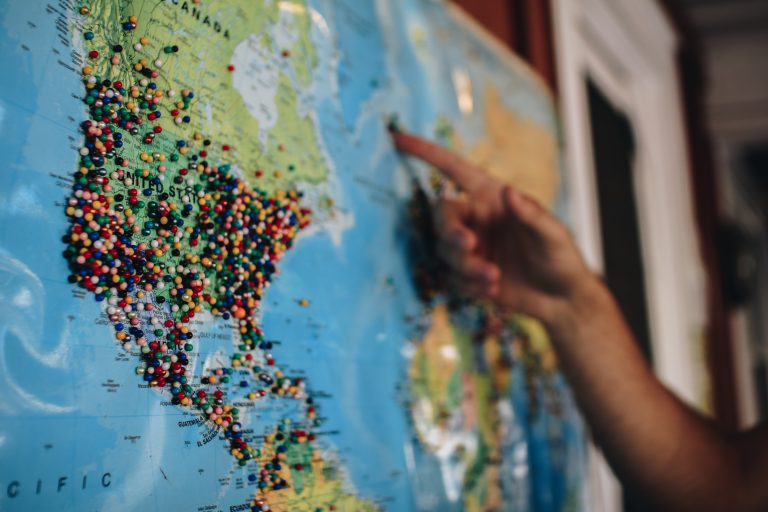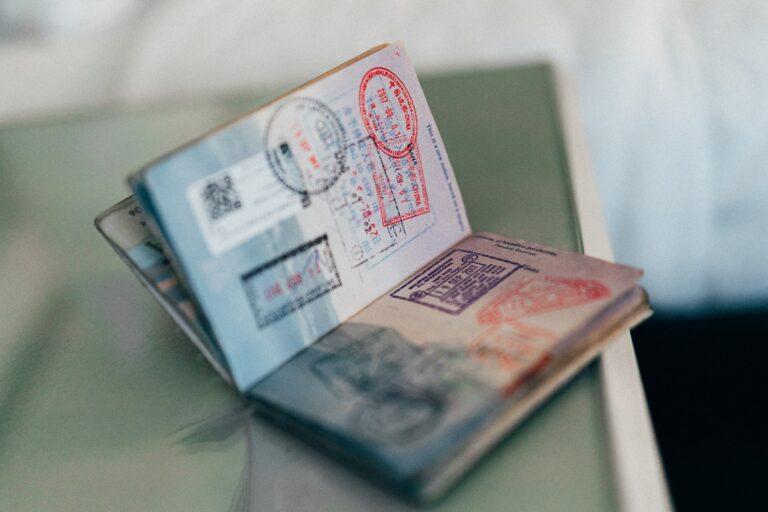Money saving tips for van life
Traveling the world can quickly become costly, so managing your money and learning how to reduce your costs is essential when you’re living on the road. To help you out, here are some easy ways to manage your budget and live the van life more frugally.
Page Contents
Learn your spending habits.
Looking back on the past few months and figuring out what you’ve spent your budget on will teach you a lot about your spending habits. You’ll realize that the small expenses pile up the most, and you might even discover your weak spot (spoiler alert: mine is buying an uncontrollable amount of M&Ms!).
Doing such an audit is pretty simple: save all your receipts and credit card statements, then list them in an excel spreadsheet which divides the cost in different categories (food, accommodation, fun, etc.). This will uncover the items you spend the most money on, and thus show you where you can save the most.
Predict your future budget
If you know what you earn (which you should), know where your costs are coming from and realize where you can save money, then it is actually quite easy to build a structured budget which includes goals that are easy to achieve.
The first step in estimating your future budget is to look at your current costs and consider how the budget might change after you move into your van. For example, you won’t have to pay rent, but you’ll have more costs in terms of gas, food, parking/campground fees, and van insurance. To help you out, we listed all the costs that are involved with the van life lifestyle.
After doing your research, you can start protecting an achievable budget to work with.
Tip: lowball the amount that you are expecting to earn, and overestimate the costs you’re going to pay. You rather have a budget surplus, than barely making ends meet.
Keep tracking your budget
Planning a budget you’re going to live by is easy, actually tracking it and sticking to it makes all the difference. The solution: a budget sheet!
It can be as basic as an excel spreadsheet where you list all the costs you’re making, which shows how much you’ve already spent and how much is still available. This allows you to fine-tune your budget even more by, for example, calculating a daily budget you need to stick to.
Just realize that keeping up with this tracker means logging all the expenses you incur. This can be time consuming, and takes a bit of dedication and discipline to follow through, but it will all eventually become a habit.
The best thing about creating this system to track your budget is that you have control over your finances. By doing this, you’ll exactly know what you can spend, which results in less stress and more time to adjust your budget if an unforeseen cost pops up.
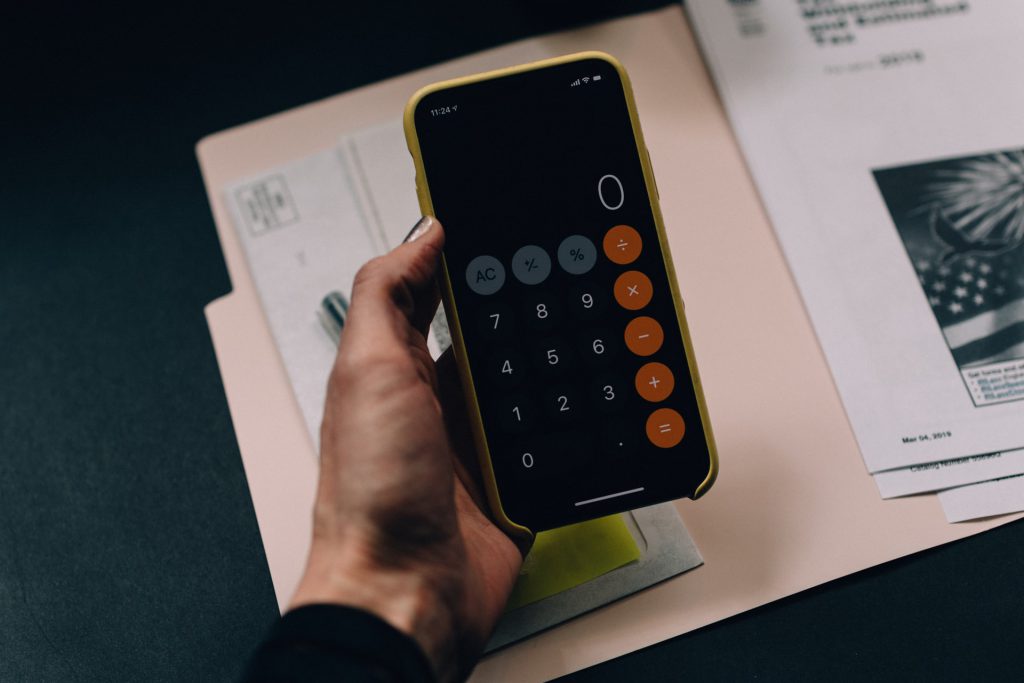
Limit your spending with a zero waste lifestyle
Reducing your costs by only spending money on things you’ll actually need while traveling, is an aspect that fits the Zero Waste lifestyle, which is also a way of life aiming to combat the waste impact we’re leaving behind.
Most of the tricks and tips they are executing, have one thing in common: it reduces the cost of traveling. The principle of a zero waste lifestyle is actually quite simple: invest in durable material that is sometimes more expensive to purchase, but saves a ton of costs in the long term.
For example, invest in a LARQ water bottle. Not because of the design, but because it’s self-cleaning and worry-free! It contains a UV-C Light technology that neutralizes a lot of harmful bacteria and viruses, making it handy when traveling to areas with unsafe drinking water… Which means you no longer have to spend money on drinking water.
If you are interested in learning more about how you can reduce your footprint in a responsible way while saving money you’re in luck! We’ve written an entire article about zero waste traveling.
Set aside emergency money
One of the main reasons why you are looking to travel the world in a van, is because of the fact it brings you freedom. This is something you should also financially try to achieve, by saving up money and setting aside a chunk of it for your emergency fund.
As COVID-19 has definitely proven: everyone needs a fallback fund, in case of difficult times. Setting up such a fund shouldn’t affect your daily spending habits, however you should aim to save at least 10 to 15% of your income per month.
Learn to eat cheap
For the foodies among the vandwellers, it will be more likely that their biggest cost wouldn’t be gas, but rather linked to culinary pleasures. Finding a healthy variation to self-catering or finding local alternatives is therefore certainly necessary.
Small things like skipping snacks and soda, getting yourself a refillable water bottle, cooking your own food and using discounts which can be found on tourism cards will help you a long way! And wait until you discover how much money you’re saving when you’re making meal plans!
Fast food and lunch specials are a cheap alternative as well, but not the healthiest way to go.
Map out your route to reduce fuel and camping costs
Here’s another trick we’ve picked up while traveling: plan your route beforehand. It’s actually something we’ve learned from the cargo transport sector, as it’s a way they save thousands of euros a week – just planning their route efficiently.
Once you know your starting point and your destination, the biggest lifehack is to look for places to visit in between. Preventing a detour by searching for the cheapest fuel stations on this route, skipping tolls, or save camping costs by booking in advance are only a few reasons why planning is a crucial way to save money.
Find a passive and active income source when traveling
Even when the final goal is exploring the world and living in absolute freedom, it’s always a good idea to have a fallback plan. Because in the end, the more money you earn, the more money you have to spend.
The best approach in finding a passive or active income is to look into your skills and assets. It doesn’t cost you anything to make a picture, or write a story… but some companies will offer you good money for this!
Could you be a freelancer a remote worker? Do you have certain crafting skills which you could easily turn into a small business? Are you open to work along the way?
Finding ways to make money when you’re living the van life on the road isn’t the biggest problem you’ll endure… as long as you stay creative. Who knows, maybe you might even be a world talented hand model, voice-over or a painter.
Invest in tools that support self-sufficiency
Another great way to save money is to invest in self-sufficient ways to travel. By doing this, you’ll have your own gear and you won’t need to be dependent on others providing it. This doesn’t only open up your options for where you can camp, it also saves a lot of budget.
While you don’t mind charging the batteries of your phone in a coffee shop, imagine how much more comfortable it would be if you have your own solar panel (and backup battery) to provide electricity in your van?
Imagine how much easier van life would be if you found solutions for showering, washing clothes, and generating warmth? You wouldn’t be forced to stay close to big cities or camping sites and you might even experience financial freedom.
Make the process easier with money saving apps
Traveling the world in your van can cost anywhere from 300 to 1200 euros a week. However, if you’re self-sufficient and keep some money saving tips in mind you might be able to save several hundred dollars a week.
It’s easier said than done. That’s why we recently created an article in which we list all the different apps that can make your van life easier.


